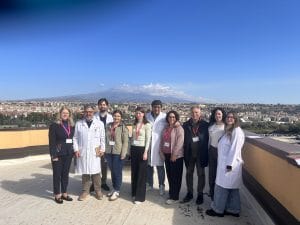What systematic data available for reduced-risk products and electronic cigarettes?
A group of Harm Reduction experts and scientists tried to answer last Tuesday, during the virtual meeting In Focus: Tobacco Harm Reduction organized by the World Forum on Tobacco and Nicotine (GTNF).
The panel aimed to highlight the crucial role of science in providing neutral and bias-free data to help consumers to make informed choices that can improve their health.
Some of the most illustrious names on the international scene included Ambassador James K. Glassman joined the event. Mr Glassman– who spoke in favour of the protection of consumer choices- expressed concern about “Consumers want products that can improve their lives, regardless of all obstacles that governments create“ and also underlined the need to curb disinformation on Harm Reduction.
Dr. Neil Mckeganey, Director of the Center for Substance Use Research at the University of Glasgow, announced the launch of the study “The Big Vape Survey“, which will be administered in the UK on a sample of 30,000 smokers. “The study aims to evaluate the comparative efficacy of different reduced risk devices about the capacity to change the habits of adult smokers, evaluating how quickly the switch from smoking to these devices occurs, when the reduction in number occurs, and any changes in the desire to quit smoking“ he said about the study.
Among the experts, Prof. Riccardo Polosa, Professor of Internal Medicine at the University of Catania and founder of CoEHAR, questioned all the scientific research that establishes a definite link between e-cigarettes and the incidence of chronic obstructive pulmonary disease and asthma. These results, according to the scientist, would leave consumers perplexed about continuing to use these products or abandoning them altogether.
“I think that a rigorous scientific approach to Harm Reduction should not be considered an obstacle but a resource. A resource that can generate credible science, which can break down barriers and reduce divisions among researchers” added Prof. Polosa
ICYMI: @riccardopolosa used his keynote address to tell #InFocus about the need for trusted science pic.twitter.com/uvHVC4J6yc
— The Global Tobacco and Nicotine Forum (GTNF) (@thegtnf) April 28, 2021
The event also stressed the need to support consumers’ choice with standardized studies. “We are not rational creatures” – said David M. Abrams, Professor at the Department of Social and Behavioral Sciences of New York University- “strong and emotional beliefs can prevail over recommendations and scientific evidence. We must be precise and systematic because there are about a billion smokers lives at stake“.




